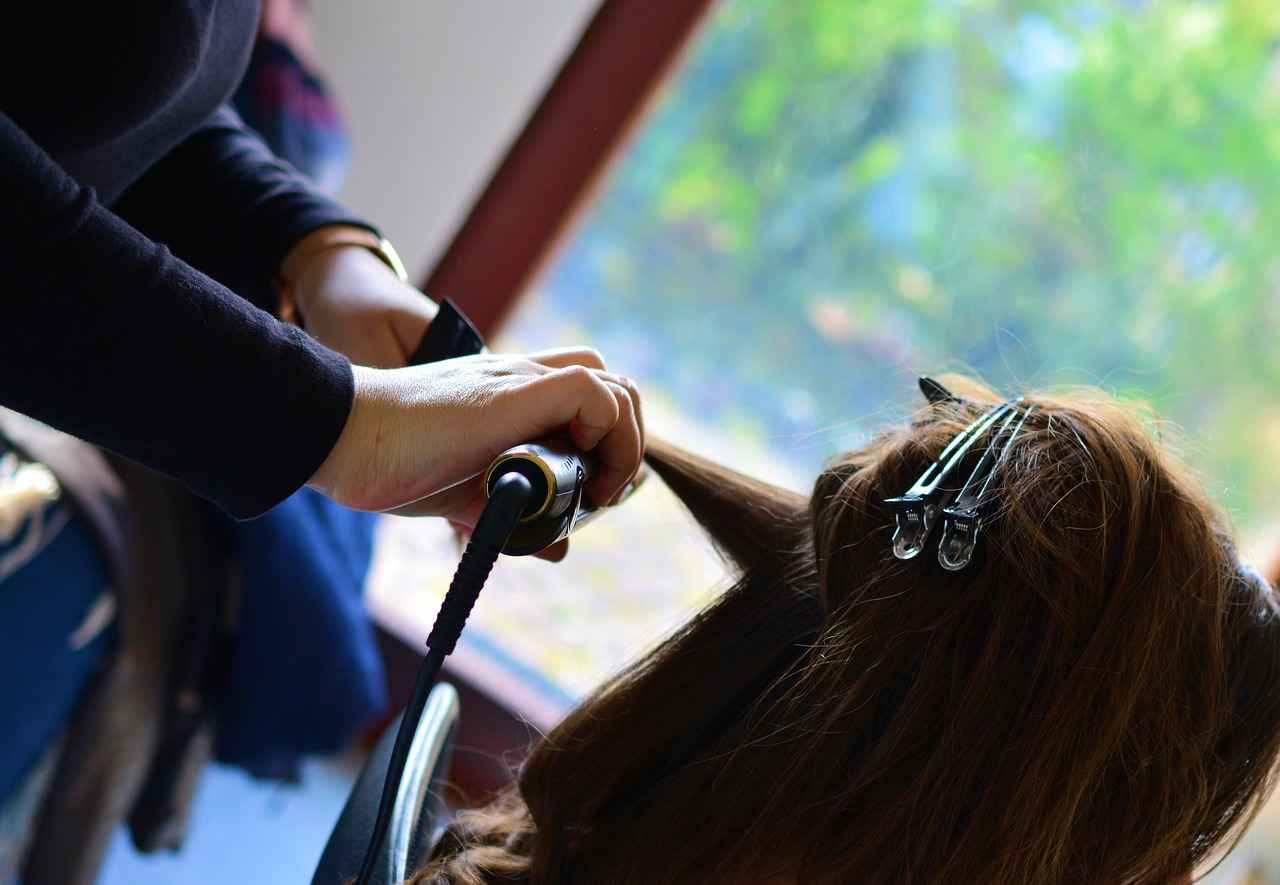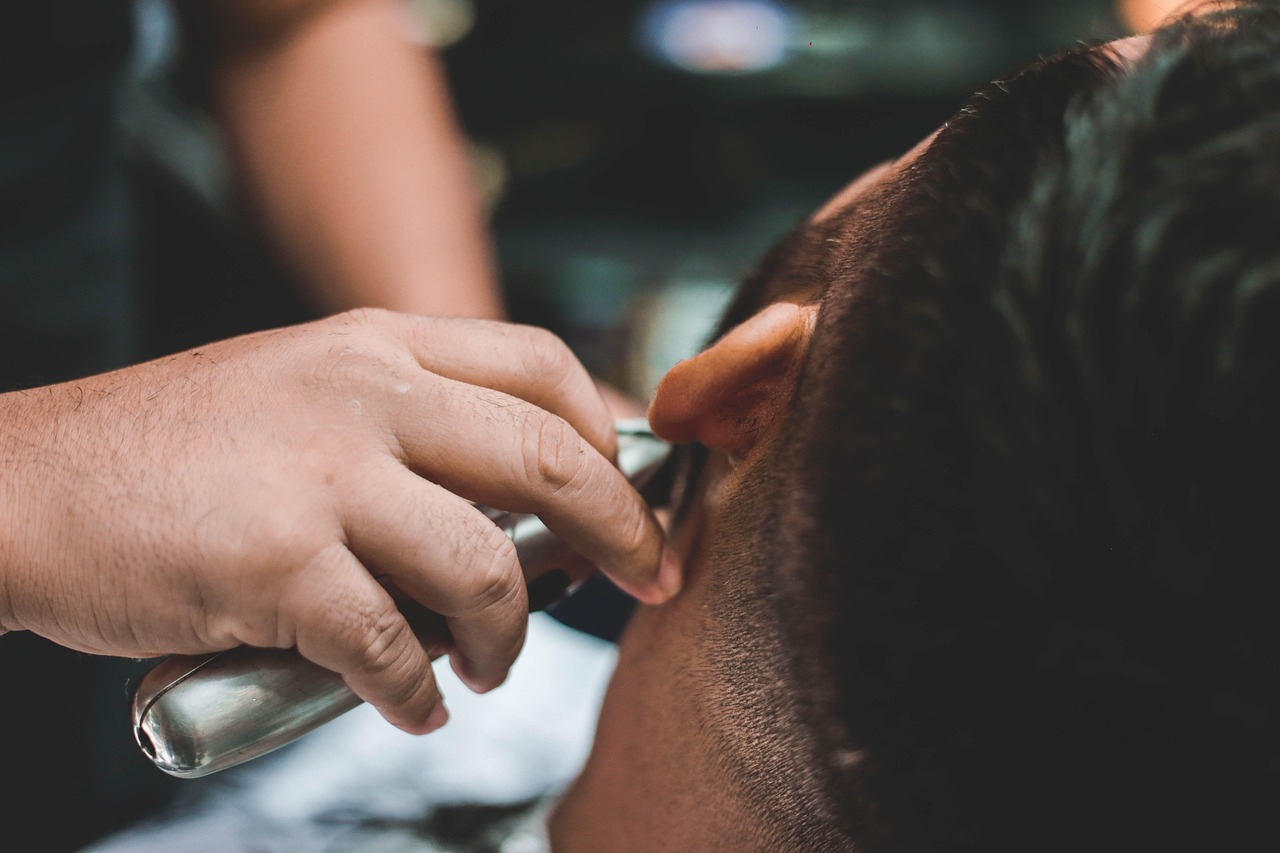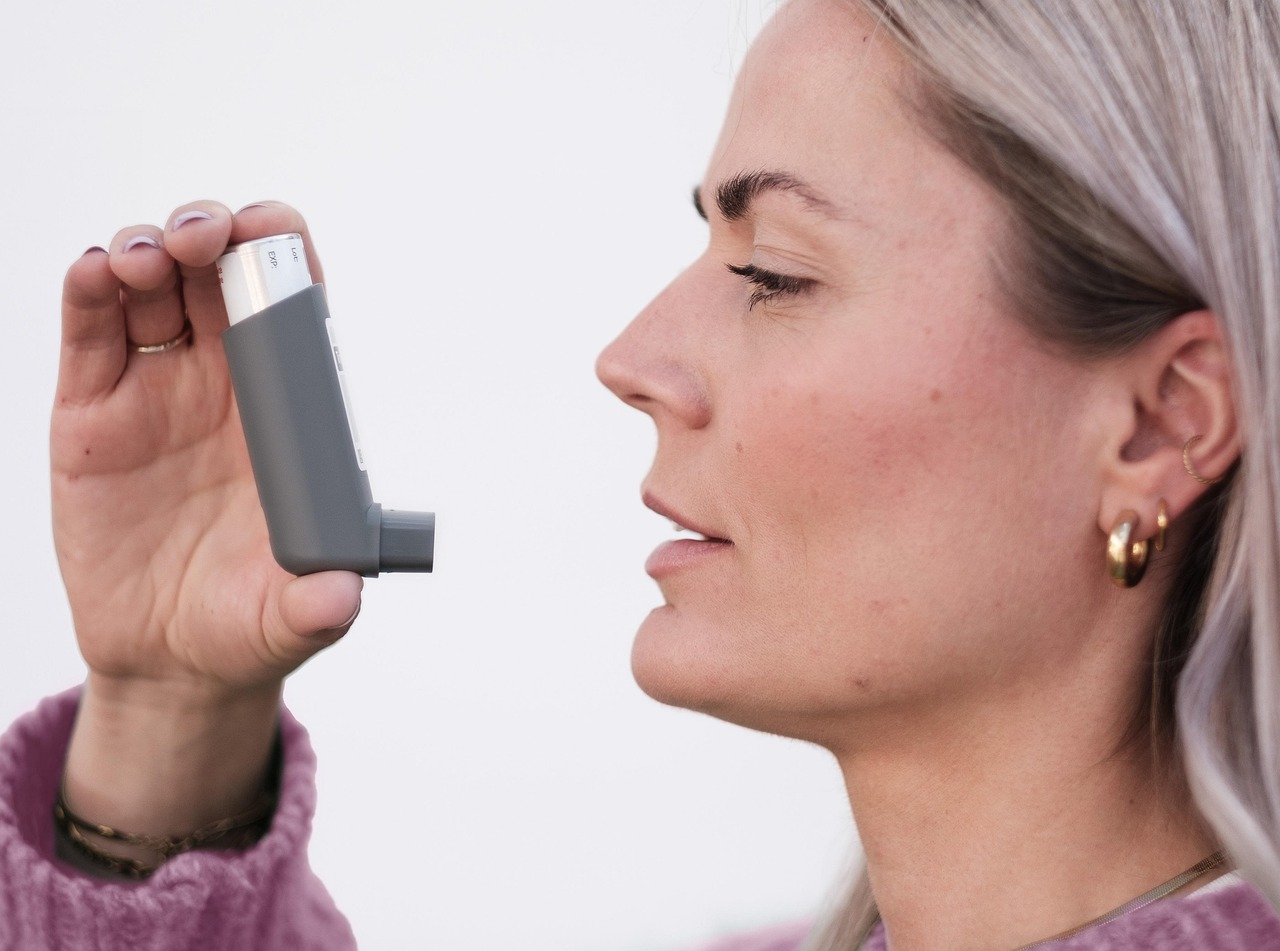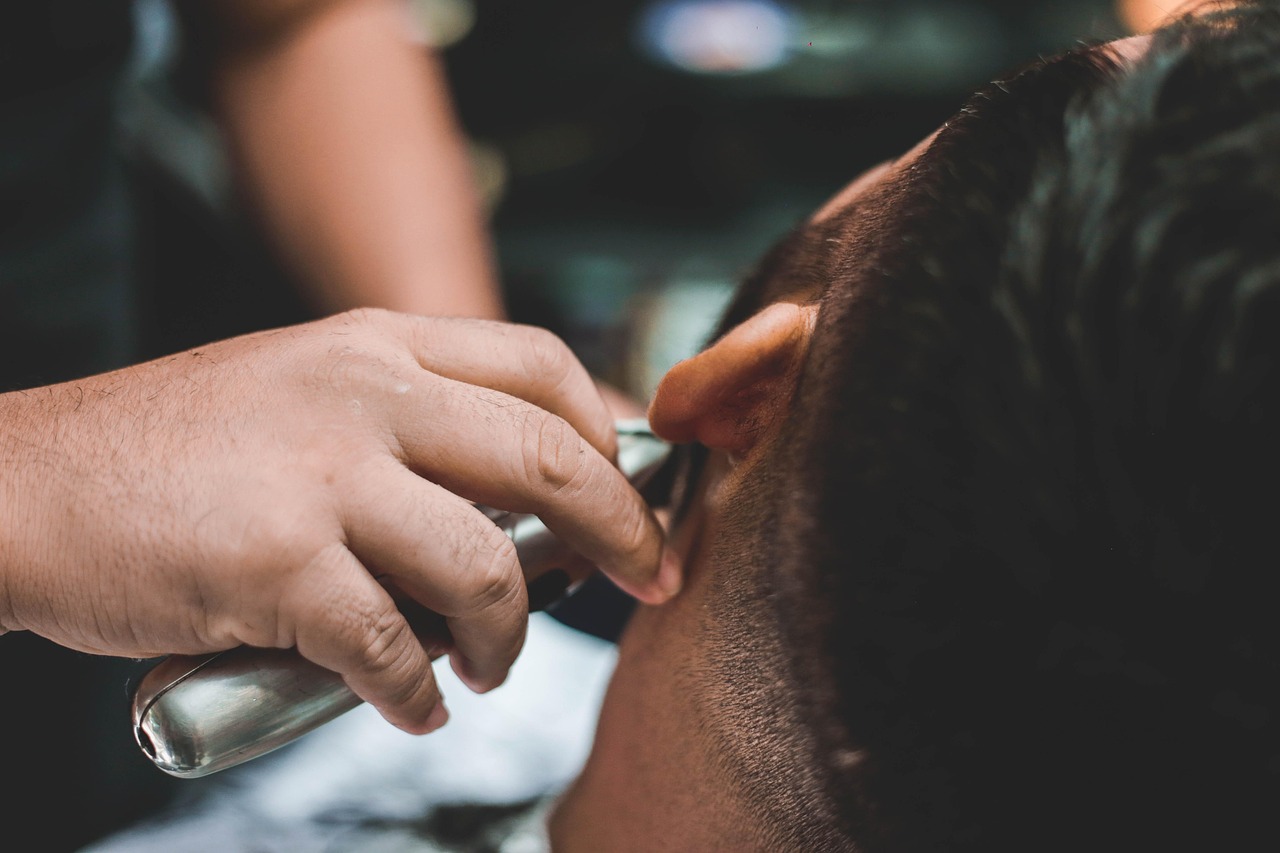This article explores the safety of traveling for hair transplant procedures, providing insights from experts and covering essential factors for consideration before making a decision.
Understanding Hair Transplants
Hair transplants are surgical procedures that involve relocating hair follicles from one part of the body to areas experiencing thinning or balding. With advancements in technology and techniques, these procedures have gained immense popularity among individuals seeking to restore their hairline.
Benefits of Traveling for Hair Transplants
- Cost Savings: Many people opt to travel for hair transplants due to lower costs in certain countries.
- Access to Renowned Clinics: Some destinations are known for their world-class clinics and experienced surgeons.
- Combining Treatment and Travel: Patients can enjoy a vacation while undergoing their procedure.
Potential Risks of Traveling for Hair Transplants
While the benefits are appealing, there are potential risks involved:
- Health Risks Associated with Travel: Traveling can pose health risks, especially after surgery, such as blood clots or infections.
- Quality of Care Abroad: Not all clinics adhere to the same standards; thorough research is essential.
Choosing the Right Destination
Selecting the right country or clinic is crucial for a successful hair transplant. Consider the following:
- Researching Clinics and Surgeons: Look for credentials, experience, and patient outcomes.
- Patient Reviews and Testimonials: Reading about others’ experiences can provide valuable insights.
Preparing for Your Hair Transplant Trip
Preparation is key to a successful hair transplant journey. Here are some tips:
- Consultation and Pre-Travel Checklist: Ensure all necessary steps are taken before departure.
- Post-Operative Care While Traveling: Understand how to manage care after surgery during your travels.
Conclusion: Making an Informed Decision
In conclusion, traveling for a hair transplant can be safe and beneficial if done with careful consideration. By understanding the risks and benefits, and by preparing adequately, individuals can make informed choices that lead to successful outcomes.

Understanding Hair Transplants
Hair transplants are surgical procedures designed to treat hair loss by moving hair follicles from one part of the body, typically the back or sides of the scalp, to areas experiencing thinning or balding. This innovative technique has gained significant popularity over the past few years, largely due to advancements in technology and techniques that enhance the effectiveness and safety of the procedure.
The most common methods of hair transplantation are Follicular Unit Transplantation (FUT) and Follicular Unit Extraction (FUE). In FUT, a strip of scalp is removed, and hair follicles are extracted from this strip for transplantation. Conversely, FUE involves extracting individual hair follicles directly from the scalp, allowing for a less invasive procedure with minimal scarring.
The increasing demand for hair transplants can be attributed to several factors:
- Improved Techniques: Modern hair transplant techniques offer natural-looking results, making them more appealing to individuals seeking solutions for hair loss.
- Celebrity Influence: Many celebrities have openly discussed their hair transplant experiences, raising awareness and normalizing the procedure.
- Increased Access: With the rise of medical tourism, individuals can now travel abroad for affordable yet high-quality hair transplant services.
As the popularity of hair transplants continues to rise, it is essential for individuals considering this option to conduct thorough research. Understanding the procedure, potential outcomes, and the importance of choosing a qualified surgeon can significantly impact the success of the treatment.
In conclusion, hair transplants represent a viable solution for those struggling with hair loss. With ongoing advancements in the field, the procedure is becoming more accessible and effective, making it an attractive option for many individuals.

Benefits of Traveling for Hair Transplants
In recent years, an increasing number of individuals have opted to travel abroad for hair transplant procedures. This trend can be attributed to several compelling factors that make overseas treatment highly appealing. Below, we explore the key advantages of seeking hair transplant services in foreign countries.
- Cost Savings: One of the most significant benefits of traveling for a hair transplant is the potential for substantial cost savings. Many clinics in countries like Turkey, India, and Thailand offer competitive pricing that is often much lower than what is available in Western countries. This can make high-quality procedures accessible to a broader audience.
- Access to Renowned Clinics: Many international clinics are recognized for their expertise and advanced techniques. Patients can find facilities that specialize in hair restoration with experienced surgeons who have a proven track record. This access to renowned professionals can lead to better outcomes.
- Comprehensive Packages: Many clinics abroad offer all-inclusive packages that cover not just the surgery but also accommodation, transportation, and post-operative care. This convenience can simplify the travel experience and ensure that patients receive comprehensive support throughout their journey.
- Advanced Technology: Some countries are at the forefront of medical technology and innovation. Patients traveling for hair transplants may benefit from the latest techniques and equipment, which can enhance the effectiveness of the procedure and improve recovery times.
- Combining Travel with Treatment: Traveling for a hair transplant allows individuals to explore new cultures and destinations. Many patients take advantage of their trip by combining their treatment with a vacation, making it a rewarding experience both physically and mentally.
In conclusion, the decision to travel for a hair transplant can be driven by numerous benefits, including cost savings, access to expert care, and the opportunity to experience a new environment. However, it is crucial for potential patients to conduct thorough research and choose reputable clinics to ensure a safe and successful procedure.

Potential Risks of Traveling for Hair Transplants
Traveling for hair transplants can be an enticing option for many individuals seeking to enhance their appearance. However, it is crucial to understand that this choice comes with its own set of risks and complications. This section delves into the potential risks associated with traveling for hair transplant procedures, ensuring patients are well-informed before making such a significant decision.
- Health Risks During Travel: Post-surgery, patients may face health risks related to travel, including deep vein thrombosis (DVT) and other complications arising from prolonged immobility. It is essential to consider how travel can impact recovery, especially after a surgical procedure.
- Infection Risks: Traveling exposes individuals to various environments, which can increase the risk of infections post-surgery. Proper care must be taken to minimize exposure to germs, particularly in crowded or unsanitary conditions.
- Quality of Care Variability: Not all clinics abroad maintain the same standards of care as those in your home country. Patients must conduct thorough research to ensure they choose a reputable clinic that adheres to high medical standards.
- Post-Operative Complications: Traveling shortly after surgery can exacerbate complications such as swelling and discomfort. It is vital to follow post-operative instructions carefully and avoid activities that may hinder recovery.
- Emotional and Psychological Factors: The stress of traveling, coupled with the anxiety of undergoing a surgical procedure, can affect the overall experience. Patients should consider their emotional readiness and support systems before embarking on this journey.
In conclusion, while traveling for a hair transplant can offer significant benefits, it is essential to be aware of the potential risks involved. By understanding these risks and taking necessary precautions, patients can make informed decisions that prioritize their health and well-being.
Health Risks Associated with Travel
Traveling, especially after undergoing a surgical procedure such as a hair transplant, can introduce various health risks that may hinder your recovery. It is essential to be aware of these potential issues to ensure a smooth healing process.
One of the most common concerns is deep vein thrombosis (DVT), which can occur during long flights or extended periods of inactivity. DVT is a condition where blood clots form in the deep veins, typically in the legs. To mitigate this risk, it is advisable to:
- Take regular breaks to stretch your legs.
- Stay hydrated throughout your journey.
- Consider wearing compression stockings.
Another significant risk is the potential for infections. After a hair transplant, your scalp is particularly vulnerable. Traveling exposes you to various environments where bacteria and viruses can thrive. To reduce the risk of infection, follow these guidelines:
- Avoid touching your scalp with unwashed hands.
- Keep your surgical area clean and dry.
- Use prescribed antibiotics if recommended by your doctor.
Additionally, jet lag can affect your recovery. It may lead to fatigue, irritability, and difficulty concentrating, which can impede your ability to follow post-operative care instructions. To combat jet lag, consider:
- Adjusting your sleep schedule before departure.
- Staying awake until local bedtime upon arrival.
- Staying hydrated and avoiding alcohol during the flight.
In conclusion, while traveling after a hair transplant is possible, it is crucial to take proactive measures to minimize health risks. Always consult your healthcare provider for personalized advice before embarking on your journey.
Quality of Care Abroad
When considering a hair transplant abroad, it is crucial to understand that not all clinics maintain the same standards. This section provides a comprehensive guide on how to assess the quality of care in foreign clinics to ensure a safe and successful experience.
First and foremost, research is essential. Begin by investigating the clinic’s credentials, including its accreditation and the qualifications of the surgeons. Look for clinics that are accredited by recognized organizations, as this can be an indicator of their commitment to maintaining high standards of care.
- Check for Certifications: Verify if the clinic has certifications from reputable health organizations.
- Surgeon Qualifications: Research the educational background and experience of the surgeons performing the procedures.
- Facility Standards: Ensure that the clinic operates in a facility that meets international health and safety standards.
Another vital aspect to consider is patient reviews and testimonials. Reading about the experiences of previous patients can provide valuable insights into the quality of care provided by the clinic. Look for reviews on independent platforms to get an unbiased view.
Consider asking the clinic for before-and-after photos of previous patients. This can help you gauge the effectiveness of their procedures and the quality of their results.
Furthermore, it is important to have clear communication with the clinic before your visit. A reputable clinic will be transparent about the procedure, potential risks, and post-operative care. They should also be willing to answer any questions you may have.
In conclusion, assessing the quality of care in foreign clinics is essential for ensuring a safe experience when traveling for a hair transplant. By conducting thorough research, checking certifications, reading patient reviews, and maintaining open communication with the clinic, you can make an informed decision that prioritizes your health and well-being.

Choosing the Right Destination
for a hair transplant is a critical step in ensuring a successful outcome. With numerous options available globally, making an informed decision can significantly impact the results of your procedure. Below are essential factors to consider when selecting a reputable country or clinic for your hair transplant.
- Research the Country: Some countries are renowned for their advanced medical facilities and skilled surgeons. Popular destinations include Turkey, India, and Thailand, known for offering high-quality hair transplant services at competitive prices.
- Check Accreditation: Ensure that the clinic is accredited by relevant health authorities. Accreditation signifies that the clinic meets specific standards of care and safety.
- Evaluate Surgeon Qualifications: Look for board-certified surgeons with extensive experience in hair transplant procedures. Their credentials can often be found on the clinic’s website or by contacting them directly.
- Patient Testimonials: Reading reviews and testimonials from previous patients can provide insights into the clinic’s reputation and the quality of care provided. Look for before-and-after photos to assess the results.
- Consultation Options: Many clinics offer online consultations. Take advantage of these to ask questions and gauge the clinic’s responsiveness and professionalism.
- Post-Operative Care: Consider what post-operative care is available. A good clinic will provide clear instructions and support for recovery, which is crucial for successful results.
In summary, selecting the right destination for your hair transplant involves thorough research and consideration of various factors. By prioritizing quality and safety, you can increase your chances of achieving the desired results.
Researching Clinics and Surgeons
When considering a hair transplant, thorough research is paramount. The decision to undergo this procedure is significant, and selecting the right clinic and surgeon can greatly influence the outcome. Here are some key factors to consider when evaluating potential hair transplant providers:
- Qualifications and Credentials: Ensure that the surgeon is board-certified and specializes in hair restoration. Look for their educational background, training, and any additional certifications in the field.
- Experience: Investigate how many hair transplant procedures the surgeon has performed. An experienced surgeon is likely to have refined their techniques and can provide better results.
- Clinic Accreditation: Verify that the clinic is accredited by relevant health authorities. Accreditation ensures that the clinic meets established standards for safety and quality of care.
- Technology and Techniques: Research the methods used by the clinic, such as FUE (Follicular Unit Extraction) or FUT (Follicular Unit Transplantation). Advanced technology can lead to better outcomes and less recovery time.
- Before-and-After Photos: Request to see a portfolio of previous patients’ results. This visual evidence can help gauge the surgeon’s skill and the clinic’s overall success rate.
- Consultation Process: A reputable clinic will offer a thorough consultation to discuss your goals, expectations, and any concerns. Pay attention to how well your questions are answered and whether the surgeon provides a clear treatment plan.
- Patient Reviews: Look for online reviews and testimonials from previous patients. These insights can give you a sense of the patient experience and satisfaction levels.
- Post-Operative Care: Inquire about the post-operative care provided by the clinic. A good clinic will have a structured follow-up plan to monitor your recovery and address any complications.
In summary, conducting comprehensive research on clinics and surgeons is crucial for ensuring a successful hair transplant experience. By considering these factors, you can make an informed decision that aligns with your needs and expectations.
Patient Reviews and Testimonials
When considering a hair transplant, understanding the experiences of previous patients can be incredibly beneficial. serve as a window into the quality of care and outcomes provided by clinics. They can offer insights that go beyond the marketing materials and brochures typically provided by medical facilities.
Reading reviews allows potential patients to gauge the success rates of different clinics and the satisfaction levels of individuals who have undergone similar procedures. This firsthand information can be crucial in making an informed decision. Here are some key reasons to pay attention to patient testimonials:
- Authenticity: Reviews from real patients can highlight both the positive and negative aspects of their experiences, providing a balanced view.
- Expectations: Testimonials can help set realistic expectations regarding the procedure, recovery time, and results.
- Quality of Care: Insights into the professionalism and attentiveness of the medical staff can be gleaned from patient feedback.
- Post-Operative Support: Understanding how clinics handle post-operative care through patient experiences can be vital for recovery.
In addition to reading reviews, it is advisable to look for verified testimonials and ratings on reputable medical review platforms. This can help ensure that the feedback is genuine and not manipulated. Furthermore, engaging in forums or support groups can connect you with individuals who have undergone similar experiences, providing a community of support and information.
Ultimately, taking the time to read patient reviews and testimonials can significantly impact your decision-making process. By gathering insights from those who have traveled the same path, you can make a more informed choice about your hair transplant journey.

Preparing for Your Hair Transplant Trip
Preparation is key to a successful hair transplant journey. Taking the time to prepare effectively can significantly enhance your experience and outcomes. Here are some practical tips to ensure you are well-prepared for your trip.
- Research Your Destination: Before traveling, it’s essential to thoroughly research the country and clinic where you will undergo the procedure. Look for clinics with positive patient reviews, experienced surgeons, and accreditation.
- Consultation: Schedule a consultation with your chosen clinic before your trip. This will help you understand the procedure, discuss your goals, and address any concerns you may have.
- Pre-Travel Checklist: Create a checklist of necessary items to bring along. This should include:
- Passport and travel documents- Medical records and prescriptions- Comfortable clothing- Personal hygiene products- Any specific medications recommended by your doctor
Plan Your Travel Itinerary: Make sure to plan your travel itinerary carefully. Allow enough time for recovery after the procedure before your return journey. It’s advisable to stay in the destination for at least a few days post-surgery to monitor your condition.
Post-Operative Care: Understanding how to manage your post-operative care while traveling is crucial. Follow the surgeon’s instructions regarding medication, rest, and any follow-up appointments. Ensure you have access to medical care if needed during your stay.
Stay Hydrated: Traveling can be dehydrating, especially after surgery. Make it a point to drink plenty of water before and after the procedure to aid in recovery.
Conclusion: By taking these preparatory steps, you can help ensure a smoother and more successful hair transplant journey. Remember, the more prepared you are, the better your chances for a positive outcome.
Consultation and Pre-Travel Checklist
When planning for a hair transplant abroad, a pre-travel checklist is essential to ensure a smooth and successful experience. Here is a comprehensive list of items and steps to consider before your departure:
- Medical Consultation: Schedule a thorough consultation with your chosen clinic. Discuss your medical history, expectations, and any concerns you may have.
- Documentation: Ensure you have all necessary documents, including your passport, medical records, and any required visas.
- Travel Insurance: Obtain travel insurance that covers medical procedures abroad, including complications related to your hair transplant.
- Pre-Operative Instructions: Follow any pre-operative instructions provided by your surgeon, such as avoiding certain medications or alcohol.
- Travel Arrangements: Book your flights and accommodations well in advance. Consider proximity to the clinic for convenience.
- Post-Operative Care Supplies: Prepare a kit with essential items for post-surgery care, such as gentle shampoos, pain relief medications, and any prescribed ointments.
- Emergency Contacts: Compile a list of emergency contacts, including your clinic’s contact information and local emergency services at your destination.
- Health Precautions: Research any health advisories or vaccinations required for your travel destination.
- Financial Preparations: Ensure you have access to funds for your procedure and any unexpected expenses. Consider carrying a mix of cash and cards.
- Travel Itinerary: Create a detailed itinerary that includes your appointment schedule, recovery time, and any sightseeing plans.
By following this checklist, you can minimize potential issues and focus on your hair transplant journey. Proper preparation not only enhances your experience but also contributes to a successful recovery.
Post-Operative Care While Traveling
When it comes to managing post-operative care after a hair transplant, especially while traveling, understanding the necessary steps is crucial for a smooth recovery. This section outlines essential guidelines to ensure that your healing process is not compromised during your travels.
- Follow Medical Advice: Always adhere to the post-operative instructions provided by your surgeon. This may include medication schedules, wound care, and activity restrictions. Keeping a copy of these instructions handy while traveling can be beneficial.
- Hydration is Key: Staying hydrated is vital for recovery. Ensure you drink plenty of water, especially if you are traveling to a location with a different climate. Dehydration can hinder your healing process.
- Manage Sun Exposure: Protect your scalp from direct sunlight. Use a wide-brimmed hat or a scarf to cover your head when outdoors. Sun exposure can damage healing skin and affect hair follicle survival.
- Avoid Strenuous Activities: While traveling, it may be tempting to engage in physical activities. However, it’s important to avoid strenuous exercise or heavy lifting for at least a week post-surgery to prevent complications.
- Plan for Rest: Ensure your travel itinerary allows for adequate rest. Overexertion can lead to fatigue, which may impede your recovery. Schedule downtime between activities to relax and recuperate.
- Monitor for Complications: Be vigilant for any signs of infection or complications, such as excessive swelling or pain. If you experience any concerning symptoms, seek medical attention promptly.
In conclusion, managing post-operative care while traveling requires careful planning and adherence to medical advice. By following these guidelines, you can enjoy your trip while ensuring a successful recovery from your hair transplant.

Conclusion: Making an Informed Decision
In summary, the decision to travel for a hair transplant requires careful thought and consideration. While there are numerous benefits associated with seeking treatment abroad, such as cost savings and access to advanced techniques, it is essential to weigh these against the potential risks involved. Below are key points to consider that can aid in making an informed decision:
- Thorough Research: Investigate clinics and surgeons thoroughly. Look for certifications, patient reviews, and success rates to ensure you choose a reputable provider.
- Consultation: Schedule a consultation with the selected clinic before traveling. This allows you to ask questions and clarify any concerns regarding the procedure.
- Post-Operative Care: Understand the post-operative care required after the surgery, especially if you are traveling back home shortly after the procedure. Proper care is crucial for successful recovery.
- Health Considerations: Be aware of any health risks associated with traveling, particularly after surgery. Ensure you are fit to travel and have contingency plans in place.
- Travel Insurance: Consider obtaining travel insurance that covers medical procedures abroad. This can provide peace of mind in case of unexpected complications.
By taking these factors into account, individuals can navigate the complexities of traveling for a hair transplant more effectively. It is crucial to remain informed and vigilant throughout the process to ensure a safe and successful outcome. Ultimately, making an informed decision can lead to a positive experience and satisfactory results.
Frequently Asked Questions
- Is it safe to travel for a hair transplant?
Yes, traveling for a hair transplant can be safe if you choose a reputable clinic and follow proper pre- and post-operative care. It’s essential to research and ensure that the facility meets high standards.
- What are the benefits of getting a hair transplant abroad?
Many people opt for hair transplants abroad due to significant cost savings, access to experienced surgeons, and the opportunity to combine their procedure with a vacation. Just be sure to weigh the pros and cons carefully!
- What risks should I be aware of when traveling for a hair transplant?
Potential risks include complications from surgery, travel-related health issues, and varying standards of care in different countries. Always consult with your doctor and do thorough research before making a decision.
- How can I ensure the quality of care at a foreign clinic?
Check for certifications, read patient reviews, and look for testimonials from previous clients. This will help you assess the clinic’s reputation and the quality of care you can expect.
- What should I include in my pre-travel checklist?
Your checklist should include scheduling consultations, gathering necessary documents, packing post-operative care supplies, and arranging accommodations close to the clinic. Preparation is key!
- How do I manage post-operative care while traveling?
Follow your surgeon’s instructions carefully, avoid strenuous activities, and keep the transplant area clean. Staying hydrated and resting as much as possible will also support your recovery.












